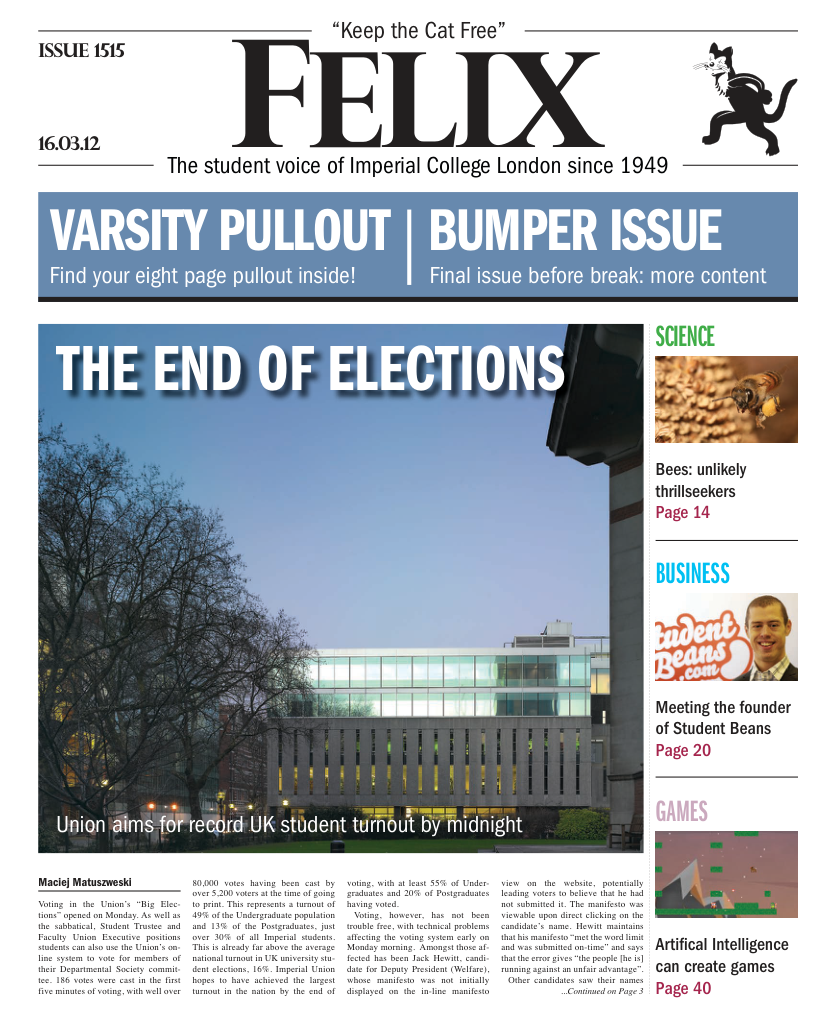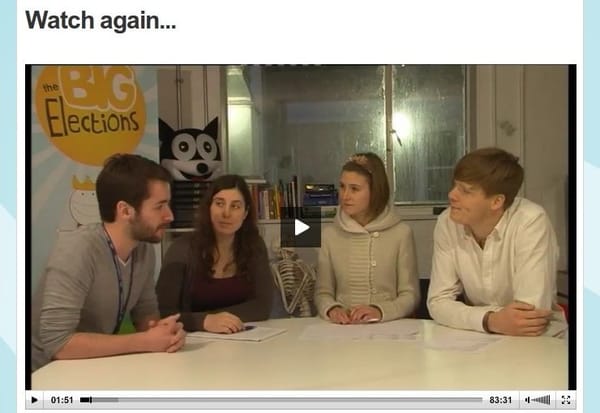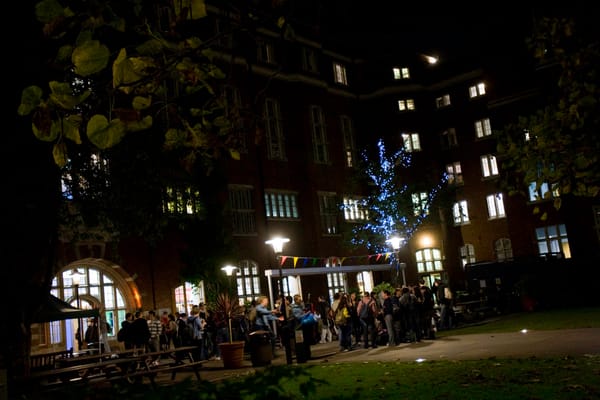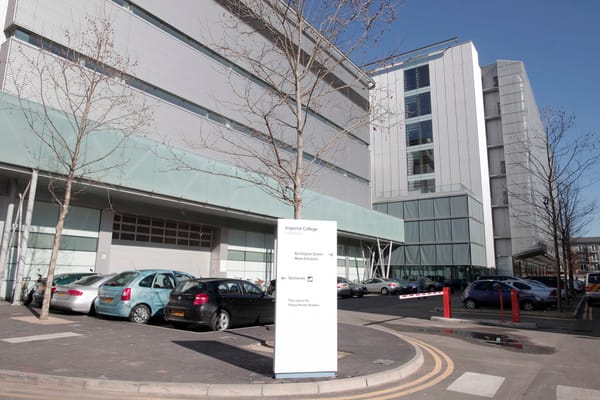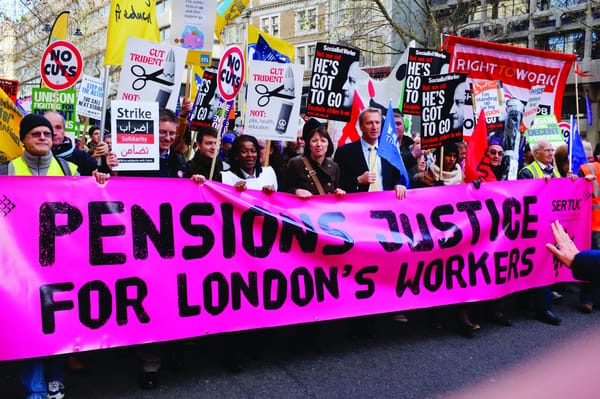Unseen Imperial
Anonymous accounts of student experiences

There are some aspects of our lives that we just don’t talk about. This makes it easy to think that we’re alone in our experiences, when in fact, we’re probably not. Last week the Union asked the student body to submit anonymous accounts of their experiences of mental health. Sincere thanks to everyone who took part – here are the responses:
Last year my father was diagnosed with a serious illness. It was the tipping point in a chain of events that lead me to where I am today. Talking about my feelings especially when it involves seeing doctors and potentially taking medication has been met with very mixed responses. I’m hoping by contributing and telling my story I’ll be able to tell my friends the secrets that I have kept from them for fear of what they will think.
I’ve always been a stressy and panicky person and throughout school my family, my friends and I learnt to deal with it. Then, when I came to University, it was picked up by my personal tutor who thought it might be best that I speak to a councillor in College. To put the experience in short I hated it. I went to one session and within the space of about 30 seconds I wanted to run. From that point on I decided I’d just have to cope.
Over the course of the next few months things went from OK to bad. Little things became a big deal. I couldn’t go to a party without feeling suffocated and really alone. I couldn’t go on a tube or into a shop without tears filling my eyes. I couldn’t keep on top of my studying without exhausting myself from fretting. I decided to go home for the weekend to get away from it all.
It was that Friday night that I was told about my Father. My whole world came crashing down. Despite the positivity of his doctors my mind immediately jumped to the worst conclusions. I cried a lot. I stopped sleeping. The stress I was feeling started to manifest itself in physical problems that made me snappy and unsociable. At this point, just before my exams, my Mother suggested that I go see the GP. She referred me to a councillor in the health centre.
The counselling at the Health Centre began as awfully as it had previously in College. There were awkward silences and it was quite frankly really weird talking to a stranger about my life. I felt like my problems were silly, but I persevered. I knew I couldn’t continue to rely on my mother. After the third session I finally started thinking about me and sorting myself out. As a scientist one tends to learn to think in black and white. Then when there is no evidence you tend to think it’s not valid. It’s hard to define anything about the process that you have to go through to change your mentality. It’s a way of thinking that I had never before employed.
So here I am today. I have learnt that I cannot just deal with my worry and low mood; I have to consciously make an effort to stop it. Sometimes it’s exhausting. Sometimes I feel myself taking a step backwards and even sometimes things still spiral a bit. But I know I’ll get there; it’s a work in progress that I know will never be complete because no one particular thing is going to stop it and make it all go away.
You may feel that you’re fully accepting of mental illness but imagine your best friend told you they were on anti-depressants? I know how some of the people closest to me reacted and it upset me and it stopped me from speaking to anyone about my experience. If you’re reading this and you’re anxious about revealing how you’re feeling - don’t be! There’s a wide network if support out there to help you even if, like me, you chose not to tell your friends. Use it. I promise you that it’ll help if you can give it the chance and are prepared to put in some effort.
~
OK, so here goes: In the not-too-distant past, I was raped. I was raped by someone I called my friend, in my own bedroom, during the day. And it is because of these details in particular that I would like to write this note.
Like probably most of you, I was taught by my parents, by my schools, and by the media that I should be aware of the dangers of being raped when going out at night. I should not dress in a revealing manner, I should carry my drink around with me, I should be wary of men that I do not know, and I should go home in a taxi or licensed cab, or via the main, well-lit streets. It seems naïve and stupid now, but this is how I thought rape was played out. And I thought that the victim would be visibly, physically hurt, and be left in some strange room or dark alleyway.
So at the time, because of my misconceptions about what rape is and the circumstances under which it can happen, I was totally taken aback and I was unprepared. Then after what happened, I saw it in some way as not being a “real” rape. I tried to be logical about it, and said to myself that if I just forgot about it, it wouldn’t hurt me. I managed to do this so well that I did not make the links between this and my insomnia, some of the subsequent changes in my behaviour, attitudes and emotional side, and the relationships I had with important people in my life. This changed when last summer I got a few snapshot flashbacks of what happened, and everything was suddenly made clear. I felt anger that I did, and still don’t, know how to express or release. I felt that it was my fault for not dealing with it earlier, and so I felt deep, painful regret for what I had lost in the meantime and I soon slipped into depression. I could not focus on work or other areas of my life, and outbursts of these emotions sometimes (still) spring out of me at the slightest trigger. I guess what I am trying to say here is that I was very naïve and ignorant of how rape can happen, and the serious effects it can have on emotional, mental and physical well-being in the longer term.
I also had misconceptions of who and what counselling services are for, believing that they were only for people with extremely serious difficulties. This meant that I did not look for help from a counselling service until I truly was in a dire state, and ultimately needed a lot more help. I believe that this is probably the case for many people at least in the British society – admitting that one needs counselling, and then that we are going to counselling, is still very taboo here. It was only towards the end of this year that I did not make up some excuse about where I was going on Tuesday afternoons when people asked, again fearing awkwardness. It turns out that there was no awkwardness at all, and I would encourage anyone else who is going or has been, to be more open about visiting a counsellor. It is not just for those with serious mental health issues, there is no reason to be ashamed for going, and contrary to what I initially thought, they help enormously.
~
I’m a female Imperial Student and wrote this poem for you about my mental health experiences. I feel down every fortnight or so, wasting hours on the internet, having eating binges, not being able to get anything done that I wanted to or talk to anyone about what I’m going through. On the outside I can be quite an outgoing and upbeat person! I do think I have low self-esteem though. I have never sought any help, partly due to the stigma, partly because I deny that I do have a problem.
Underneath
No one knows what lies under the surface, Is it better that way? Feel I have to be fun around my friends Or they won’t be friends anymore. So I stay inside, safe in my own world, But it’s in my own world where my thoughts suffocate me. When the shadow passes I don’t want to talk about it anyway. Just pretend it never happened, Try to move on To sunnier days.
~
When I was 14 I developed depression. Things were really difficult, I was self harming and missing a lot of school and I had completely lost my friends- it’s a very isolating experience. Even though I saw a psychologist, I couldn’t talk to anyone – I felt massively ashamed that I wasn’t coping, I’d always been a high achiever and wasn’t the “type” to struggle so I put up this wall and refused to face up to things. It took several years of therapy before the depression and self harm started to be less present in my life – I was 17 by the time I was discharged and outwardly coping pretty well with things. I say outwardly as although I’d mostly stopped self harming, it’d been replaced with an eating disorder. I’d had it for years before I finally told my doctor about it having moved to Imperial and found things getting out of control again – getting good grades and keeping busy became a lot more stressful and pressurised in a uni environment than back in 6th form and combined with homesickness I just found myself completely overwhelmed. I’m now waiting to start treatment for my eating disorder. I wish I’d spoken out earlier and asked for help back when I first got ill but that’s what makes mental health problems so difficult to cope with. It’s a lot easier to admit to having a cold or something physical than to admit that actually, things are really tough but talking about it is so important. Sometimes people react badly, but often they don’t – without the support of people like my friends and my mum, things would have been a lot harder.
We’d really like to run more articles like this. If you’d like to share your experiences of anything people don’t openly discuss, such as faith, sexuality, body image, mental health, disability or discrimination of any kind, please email icu-disabilities@imperial.ac.uk. You can create an anonymous email address to send it from and any details which could be used to identify you will be edited out.

